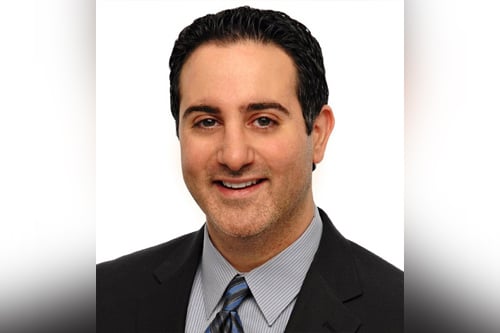This bicoastal originator uses unique strategies for unique regions

Although New York and Los Angeles are on opposite sides of the country, they share aspects that make them truly unique in terms of mortgage lending, such as specific property types and longer-than-average closing times.
Mark Maimon, vice president and team lead at Freedom Mortgage, has learned how to navigate the particular aspects of both of those markets, becoming one of the top originators in the country and closing more than $110 million in 2017.
In the current environment, Maimon says that his goals are pretty clear: get to people earlier, build deeper relationships, and increase market share. When there are fewer transactions to go around and numbers have to equal those of the previous year in order to stay afloat, business development becomes much more critical.
“In a contracting market you have to have a higher market share, and more people referring, and better referrals, and higher loan amounts and all that type of stuff. Otherwise, you’re going to continually wax and wane with what’s going on industry-wide. We want to buck those trends so we try to do things that will put us in a different position than the average originator,” Maimon said.
For a while, Maimon’s business underwent a kind of waxing and waning of its own. They’d get busy with origination, and their efforts to bring in new business would fall by the wayside. When their loans got close to closing, then they’d work on building business and origination would pick up again; lather, rinse, repeat.
Working with a business coach at Building Champions, Maimon transformed an existing position on his team into being dedicated entirely to developing new relationships and propelling the business forward. Instead of riding the waves, Maimon figured out a way to steady the ship. It was a tough transition.
“It probably took about two years to show dividends, it cost me a lot of money to do it and it was a risky endeavor because we didn’t know anybody else who had done it,” Maimon said. “We’re five years into that and it’s really paid off in spades.”
Maimon’s value proposition is, in many ways, based on the peculiarities of the New York and L.A. markets as well as their clients, who are very savvy in terms of both finance and business.
“They get it. You can’t sneak anything by them, you can’t pretend you know things, you really have to be a subject matter expert. Whereas the deals we do in other parts of the country, where you deal predominately with conforming, government types of loans, we don’t see those nearly as often. The majority of our business tends to be jumbo, which is a very ultra-competitive market, especially when you’re talking about retail versus correspondent, it’s highly competitive, very cutthroat,” he said.
Because the clients tend to be savvier and less in need of a lesson how financing and mortgages function, they’re already starting the game on second base. That’s beneficial once the actual loan process begins, but it presents a challenge to get to buyers earlier in the process.
One of these methods Maimon and his team have devised is a pre-purchase consultation, geared toward clients of financial advisors who have made a financial plan for a future home purchase. The consultation can happen as far as three years before the expected date of purchase, and acts as a value add to the referral partner and the services they offer their clients.
“It’s a great service to the client, it builds a ton of rapport because you’re talking to them at a time when most loan originators would want nothing to do with them because they think it’s a waste of time, but you’re investing time in these people,” Maimon said. “It’s really a win win win and it’s really one of the many ways that we try to get in with people early early early, before they start getting that education elsewhere or poking around online.”
It’s the difference between starting a relationship with a conversation around a potential client’s needs and desires, rather than starting a conversation centered on mortgage services. Investing in people—and your business—early requires more legwork, but it’s still easier than attempting to build a rapport while doing a preapproval, when the potential client is shopping around.
“The earlier you get on, the more value you add to them, then hopefully they’ll reward you with their business but you can’t expect them to reward you with their business if you’re not doing anything more than anyone else. You have to earn it, especially in our markets, you have to earn the business and bring something fresh and new to the table.”
Part of getting to clients earlier than the average originator ties into a team goal of educating referral partners. Maimon’s team is included as part of the real estate training for some of the largest real estate firms in the tri-state area, and there’s a role on the team that’s solely responsible for giving classes and talks to referral partners.
“You have to diversify your business in that way and not be totally reliant on realtors because if the real estate market nationwide or in your local market is slow, you still need transactions to pay your bills. You have to have more than one source.”
Maimon’s team has a five-year plan that includes an “aggressive” effort to go after referral partners in other industries each year, such as estate attorneys. Moving forward is what Maimon does, and it’s hard to see how anyone can stop him.
Related stories:
Top Originator: Shant Banosian
Safe Haven: industry expert Sue Woodard



